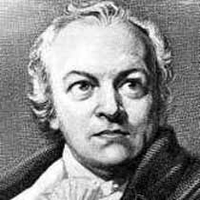England! Awake! Awake! Awake! by William Blake: Summary and Critical Analysis
One of the many visionary epics, this poem by William Blake seems to embody the optimism for a regenerate England chosen by the true original God, like the excitement of John Milton for such a spiritual leader out of his country. This present piece of poem is a call for a spiritual revolution. The speaker is calling the whole nation England to wake up.

William Blake (1757-1827)
Here we sense that the fallen Earth mother of the introductory poem in “Songs of Experience” is not fallen and helpless; it is only necessary that the people wake and live spiritually.
Jerusalem was the country chosen and blessed by God in the antiquity, and England (as to Milton) is the chosen country. The hills and valleys themselves have sensed the ‘feet’ of Jerusalem (or the original Christianity), and the gates of Zion (the gateway to heaven) are looking at her sweetly. The time has returned again, and the souls of the people (our) are exulting at the arrival of the Lamb of God (Christ). England is green and pleasing to look at; probably this also suggests the imminent spiritual regeneration.
We cannot say for certain what the political situation in England is responsible to make Blake so optimistic about a spiritual revolution. We can only say, in terms of the limited works we have read, that after the realization of the persona of “The Tyger” that spiritual revolution is necessary and possible through the individual rebellion against the fetters of the world of experience, and after writing the poems about Ulro, or a world ruled entirely by rationality and science, Blake seems to have returned to this more optimistic state of mind. If the child of ‘innocence’ (The Lamb and The Divine Image) has passed through the world of ‘experience’ (A Divine Image and The Tyger), and has realized the power of his own spiritual potential, he might now be asserting that spiritual revolution is possible; that seems to be what the present speaker is calling the whole nation for.
Like the others, this poem also has neither the traditional elements like plot, characters and rhyme, nor does it follow the typical classical meter that were hardened as binding rules for writing poetry. His rhetorical free-verse lines in this and other poems of his later life demand new modes of reading. On the level of theme, they envision a new and higher kind of innocence, the human spirit triumphant over reason. We should therefore read the piece from Jerusalem as depicting a world where the individual struggling against the forest of the night of ignorance and corruption has now become able to transcend (at least individually) as is able to call for a new nation and a world where spiritual awakening is possible, if people are ready to respond and act.
Cite this Page!
Sharma, K.N. "England! Awake! Awake! Awake! by William Blake: Summary and Critical Analysis." BachelorandMaster, 24 Nov. 2013, bachelorandmaster.com/britishandamericanpoetry/england-awake-awake-awake.html.
Related Topics
The Tyger from Songs of Experience
The Lamb from Songs of Innocence
 |
bachelorandmaster.com |